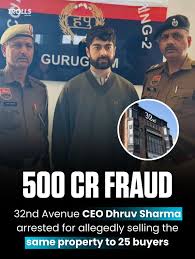B.N. Maitra, J.@mdashIn this case the accused was prosecuted on a charge u/s 414 of the Indian Penal Code. On 6-5-1977, the arguments were heard and a date fixed for delivery of judgment. Ultimately the judgment was not delivered. On 17-5-1977, the learned 7th Court of the Metropolitan Magistrate passed an order that the evidence of P. W. 1 Tarun Dasgupta was ambiguous on a particular point. He also considered that the examination of A. Dasgupta, Chief Security Officer, Vigilance Office of the Commissioners, Port of Calcutta, was essential for a just decision of the case. So he issued urgent summons for that purpose. Against that order the present Rule has been obtained.
2. The learned Advocate appearing on behalf of the accused petitioner has contended that on 6-5-1977 the arguments were heard and judgment reserved till 14-5-1977. On that date the judgment was not delivered and 17-5-1977 was fixed for delivery of judgment. On that date also the learned Magistrate did not deliver the judgment. He stated that there was some obscurity and ambiguity in the evidence of P. W. 1, Tarun Dasgupta, on a particular point. He also thought that the examination of Shri A. Dasgupta was essential for a just decision of the case. The learned Magistrate gave vent to his feelings and wanted to plug the loopholes in the prosecution case. Of course, u/s 540 of the old Criminal Procedure Code the Magistrate has a wide discretion to exercise such power. Since such power is very wide, the learned Magistrate should have been cautious to exercise the same. The case of Natabar Ghosh v. Adyanath in (1923) 27 CWN 675 at p. 676 : 1978 Cri LJ 957 has been cited to show that where after both the sides had closed their respective cases and the arguments had been heard and a date fixed for delivery of judgment, the two witnesses, who were named by the prosecution were examined before the Magistrate, the Magistrate having exercised his powers u/s 540 of the Code, the accused can rightly complain that the procedure adopted was unjustified. Hence the conviction passed in that case was set aside. It has been contended that in view of the facts of the case the Court should set aside the order passed for summoning those two witnesses.
3. Section 540 Cr.P.C. of the old Criminal Procedure Code says that the Court may at any stage of the trial summon any person as a witness or recall and examine any person already examined, if his evidence appears to be essential to the just decision of the case. In the case of Natabar Ghosh, two witnesses, who were named by the prosecution, were examined before the Magistrate. They were not examined suo motu by the Magistrate, Here the court has passed such order on his own motion for a just decision of the case and not on the basis of any prayer made on behalf of the prosecution.
4. Reference may be made to the observations of Mr. Justice Hidayatullah in the case of
5. In this case the evidence was partly recorded by the learned Magistrate and the rest of the evidence was recorded by his predecessor. When the aforesaid two witnesses are actually produced, the accused shall get an opportunity to cross-examine them at length. So, there is no question of prejudice. Since the court has stated that the examination of Shri A. Dasgupta and recalling of P. W. 1, Tarun Dasgupta is essential for a just decision of the case, his order in this respect is a correct one and the same cannot be interfered with in this revisional application. Hence the submissions made on behalf of the petitioner cannot be accepted.
6. The Rule is, therefore, discharged.

